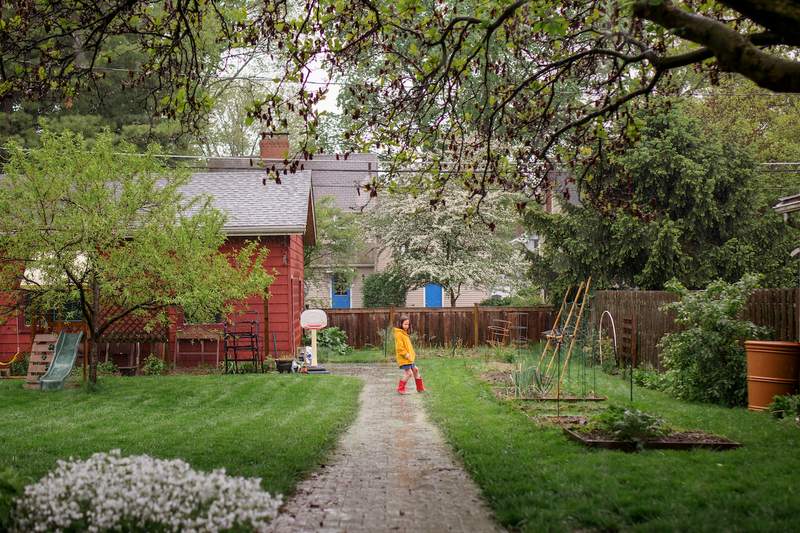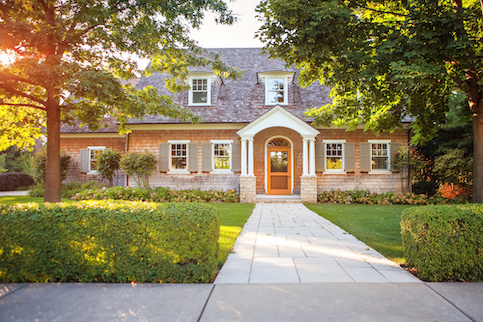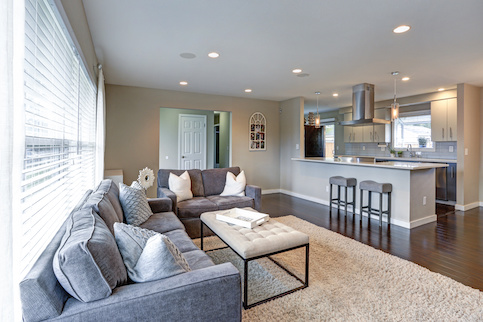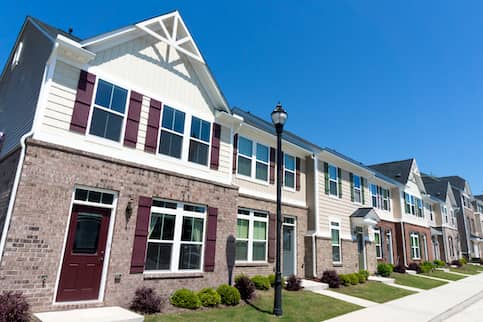What Are Prepaid Costs When Buying a Home?

It won’t take long in the home buying process before discovering that buying a home involves expenses beyond the down payment and monthly mortgage. Knowing which are prepaid costs that are wrapped into the loan rather than out-of-pocket expenses is essential when breaking down the expenses of buying a home.
With prepaid expenses being a considerable chunk of the closing costs, it’s crucial to know the ins and outs of prepaid costs when buying a home.
Which Expenses Are Prepaid Costs When Home Buying?
Prepaid costs are the expenses that you pay at the time of closing the purchase of your home, in addition to your down payment. These initial fees are needed to kickstart your homeownership and cover various services and obligations.
Prepaid costs cover several different types of expenses. Prepaid costs cover property evaluation and future expenses tied to owning the home such as taxes, insurance, home appraisal and the cost to set up an escrow account.
It can be easiest to break them down as mortgage-related prepaid costs and property-related prepaid costs.
Mortgage-Related Prepaid Costs
Mortgage-related prepaid costs typically encompass the charges directly associated with obtaining your home loan. Two main elements make up your mortgage-related prepaid costs:
- Prepaid Interest
- Mortgage Insurance
Prepaid Interest
Prepaid interest is the amount of interest that accrues on your mortgage between the closing date and the start of the first full payment period. Lenders require interest to be paid upfront to ensure it is accounted for from the initial day of the loan, aligning payment schedules with the amortization plan.
The amount varies based on the loan size, the interest rate, and the number of days between closing and the first of the following month. For example, if you close on June 10th and your first mortgage payment is due August 1, you must prepay interest from June 10 to June 30. This ensures that your first mortgage payment will cover the interest for July, the first full month you own your home.
Mortgage Insurance
Mortgage insurance is an upfront cost that may be required if the down payment on a home is less than 20% or if you purchase a home with a Federal Housing Administration loan. This insurance protects the lender if the borrower defaults on the loan. Common types of mortgage insurance are private mortgage insurance, which comes with conventional loans, and mortgage insurance, which comes with FHA loans.
Those paying mortgage insurance may be doing so as part of a loan designed for buyers who cannot afford a significant down payment. While mortgage insurance adds to the cost of acquiring a mortgage, it enables many to embark upon homeownership sooner than they might otherwise manage.
The cost of mortgage insurance can vary, but for FHA loans, for example, the upfront MIP is typically 1.75% of the loan amount while the annual MIP ranges from 0.45% to 1.05% depending on the length of the loan, the amount borrowed, and the initial loan-to-value ratio.
Property-Related Prepaid Costs
Beyond the prepaid costs associated with obtaining a mortgage, your future home also comes with several property-related expenses. Be prepared for the following costs:
- Property taxes
- Title insurance
- Initial escrow payment
- Homeowners insurance
- Homeowners association fees
Property Taxes
Property taxes are calculated based on the assessed value of the property and the local tax rate. Funds paid in property taxes fund public services such as schools, infrastructure and emergency services. At the closing of a home purchase, property taxes are often prorated, meaning the seller pays up until the sale date and the buyer pays for the remaining tax year. This expense should not be overlooked as it can represent a substantial part of a homeowner’s annual expenses.
Property tax rates and assessments vary greatly depending on your location and the value of your home. It’s critical to investigate local tax rates and consider their impact on your budget when purchasing a new property. When budgeting, remember that some mortgage lenders require taxes to be included in monthly mortgage payments, held in escrow and then paid by the lender on your behalf.
Title Insurance
Title insurance offers buyers and lenders protection against future claims or legal fees arising from disputes over the ownership of the property. This insurance covers events before the current owner’s policy was issued, such as fraud, forgery, undisclosed heirs or mistakes in public records. Typically split into two policies – one for the owner and another for the lender – title insurance is a one-time fee paid at closing.
The cost of title insurance depends on the property’s value and the chosen insurance company. Although it’s a voluntary purchase, title insurance is highly recommended by real estate professionals as it secures peace of mind for what is often your most significant investment.
Homeowners Insurance
Homeowners insurance protects your investment against unexpected events like natural disasters, theft and personal liability. Lenders often require this coverage to ensure that their financial interest in the property is safe. Homeowners insurance offers financial protection over the physical dwelling and the personal property inside it. It also provides liability coverage to the owner should anyone be hurt on the premises.
Premiums for homeowners insurance are influenced by location, type of coverage, the value of the home and the value of the items within it. Lenders typically require an insurance policy to be in effect at closing. They may include these premiums in your monthly mortgage payment, holding them in an escrow account.
Initial Escrow Payment
Your lender will require an initial payment be made into escrow to fund your property taxes, homeowner’s insurance and mortgage insurance premiums. The initial escrow payment acts as a savings account set up by the lender to ensure there are adequate funds to cover these important expenses when they are due.
The amount of your initial escrow payment depends on how much you expect your annual taxes and insurance premiums to be, but it typically ranges from 2 to 6 months’ worth of these expenses. This amount will then be added to your monthly mortgage payments and held in escrow by the lender until these bills are due.
Homeowners Association Fees
Homeowners association (HOA) fees are periodic charges collected to fund various expenses outlined by the individual HOA that represents your neighborhood, should your community have one. HOA fees will usually go into a reserve fund to cover improvements to the property and maintenance of communal areas such as parks, swimming pools and clubhouses. The fees may also support amenities like trash removal, snow plowing, cable TV or utilities such as water or power.
HOA fees vary based on the included amenities and services, the size of the community and the costs of maintaining shared spaces.
What’s Your Goal?
Home Purchase
Home Refinance
Tap Into Equity
Importance Of Budgeting For Prepaid Costs
Prepaid costs can add up quickly and should be integral to your home buying budget. Failing to factor these in could lead to last minute financial scrambling, causing stress in the best of scenarios and derailing your purchase in the worst.
Preparation and budgeting can go a long way toward ensuring a smooth and successful home purchase. Research and factor in all potential prepaid costs when creating your home buying budget. It’s always better to overestimate rather than underestimate these expenses to avoid any financial surprises. Keep in mind that some of these costs may be negotiable or can be rolled into your mortgage, so always consult with your lender and real estate agent to determine the best approach for you.
The Bottom Line
Preparing to purchase a home means accounting for big expenses like a down payment and other expenses. Prepaid costs are often overlooked but are significant financial requirements you’ll inevitably run into when you decide to become a homeowner.
More From Quicken Loans:
Ready To Become A Homeowner?
Get matched with a lender that can help you find the right mortgage.











